STATEHOUSE REPORT | ISSUE 23.40 | Oct. 4, 2024
BIG STORY: Helene response efforts continue across S.C.
MORE NEWS: Biden, state leaders hail strike’s end as boon to recovery
LOWCOUNTRY, Ariail: Problem-solver
COMMENTARY, Brack: Americans might not be as divided as you think
SPOTLIGHT: The Felkel Group
MYSTERY PHOTO: Old stone building
FEEDBACK: Send us your thoughts
Helene response efforts continue across S.C.
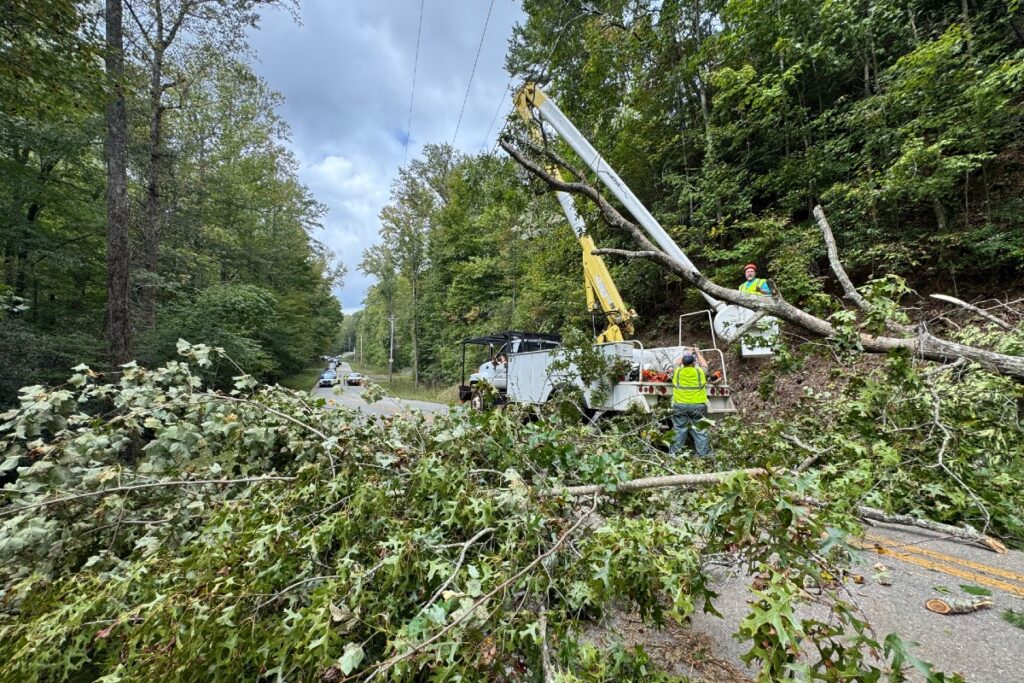
By Jack O’Toole, Capitol bureau | With Upstate residents reeling from the devastation wrought by Hurricane Helene on its deadly trek through South Carolina, federal, state and local officials scrambled throughout the week to deliver emergency services and get the lights back on for millions of Palmetto State residents.
On Oct. 2, President Joe Biden visited the Carolinas to survey storm-ravaged areas and ensure federal aid was reaching those in need.
“I’m here to say the United States, the nation, has your back,” Biden said. “We’re not leaving until you’re back on your feet completely.”
After meeting with state and local leaders and first responders in North and South Carolina, including Gov. Henry McMaster and U.S. Sen. Lindsey Graham, Biden stressed the country’s bipartisan response to natural disasters.
“In a moment like this … there are no Democrats or Republicans, there are only Americans,” Biden said. “And our job is to help as many people as we can as quickly as we can and as thoroughly as we can.”
Delivering more help
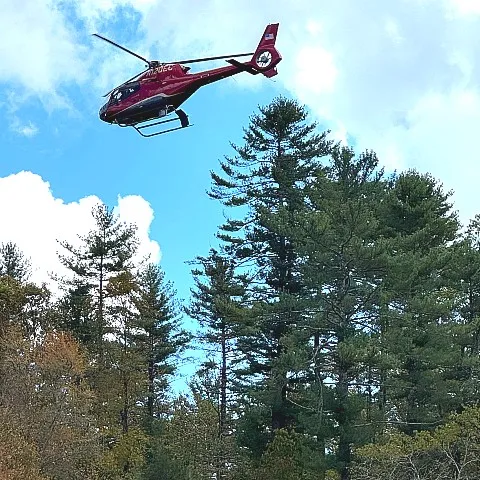 Meanwhile, Palmetto State leaders are still working to repair critical infrastructure and deliver assistance to those in need.
Meanwhile, Palmetto State leaders are still working to repair critical infrastructure and deliver assistance to those in need.
“We’re making great progress,” McMaster told reporters on Oct. 3, “but we have a long way to go.”
As Statehouse Report went to press on Oct. 4, state officials said their top priorities remained clearing roadways, restoring power, operating shelters, distributing water and food, and assessing damage in the state’s hardest-hit areas. In support of those efforts, federal officials were processing state emergency assistance requests on an expedited basis, according to S.C. Emergency Management Director Kim Stenson.
“FEMA normally funds 75% of the cost for a disaster like this,” Stenson said Oct. 3. “However, because of the extraordinary circumstances of this disaster, we’ll be requesting today 100% federal funding … for a 180-day period.”
To date, 17 S.C. counties have received formal federal disaster declarations, with four more requests currently pending.
Closed roads, opening of shelters
As of Oct. 3, more than 300 roads remained closed across the state and 295 South Carolinians were in 18 medical and general-needs shelters. In addition, state-sponsored and nonprofit feeding operations were underway in 14 counties, including Greenville, Laurens, and Richland.
But even as state officials continued response and recovery efforts in regions that suffered the immediate brunt of Helene’s fury, they were also focused on the threat of further flooding, as downstream waterways swollen with floodwaters began to overflow their banks.
Of particular concern, according to state emergency officials, were the Pee Dee River and the Santee River in Georgetown, Williamsburg and Berkeley counties, which are expected to crest on Oct. 6.
‘Unprecedented damage’ to utility infrastructure
With devastated substations and tens of thousands of downed power lines, many entangled with fallen trees, representatives of the state’s major utilities pledged to have power restored for “the vast majority” of their customers by Oct. 4, but stressed the difficulties crews were facing.
For perspective, Central Electric Power Cooperative CEO Rob Hochstetler explained early in the week, it takes a four-person crew up to four hours to replace a single pole – and his company had more than 1,900 poles down.
Moreover, he said, the “utter destruction” that Helene inflicted on some parts of the Upstate created “unprecedented damage” to critical utility infrastructure.
“This is not a typical storm restoration,” Hochstetler said. “It’s a rebuild.”
But when asked whether burying power lines could help protect against future weather-related damage and outages – an idea floated by the state’s senior U.S. Sen. Lindsey Graham – some utility leaders noted the high cost to consumers.
“It’s expensive,” Dominion-S.C. President Keller Kissam said. “And if customers are going to pay for it, you’re going to put an unfair burden on some South Carolinians that maybe aren’t able to pay.”
Nevertheless, McMaster seemed supportive of the idea, saying he’d discussed it with President Biden on Wednesday.
“That would be a good federal project,” McMaster said. “It’s expensive, but we wouldn’t have some of the problems we have now if we had more [buried power lines] in certain places.”
By the morning of Oct. 4, more than 270,000 South Carolina homes were still without power, down from 1.3 million earlier in the week.
Downstream flooding and a ‘new normal’ Upstate
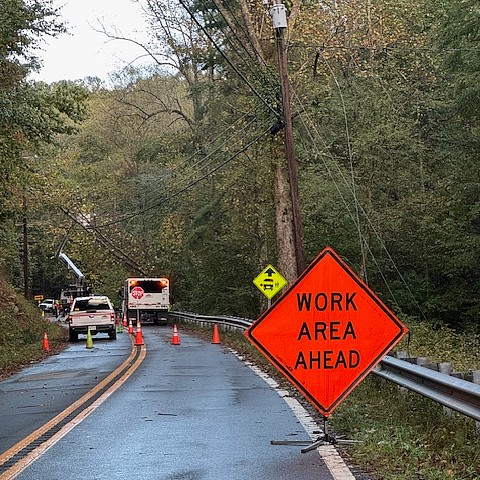 As flood waters from the Upstate and North Carolina mountain regions rolled down through the state’s major waterways toward the ocean, officials advised citizens in low-lying areas along the Pee Dee and Santee rivers to monitor local media for emergency flooding alerts.
As flood waters from the Upstate and North Carolina mountain regions rolled down through the state’s major waterways toward the ocean, officials advised citizens in low-lying areas along the Pee Dee and Santee rivers to monitor local media for emergency flooding alerts.
Some of those downstream flooding effects were felt soon after the storm in the Columbia area, with water reported in homes and roadways on the Broad and Congaree rivers, which crested at near-record levels on Sept. 30.
But heading into the weekend, emergency managers were focused on rivers further downstream, particularly the Santee.
“Rivers in the far eastern part of the state are still rising,” S.C, Emergency Management Division Chief of Preparedness Andrew Phillips said on Oct. 4. “The Santee River in Georgetown and Berkeley County areas went into major flood stage early this afternoon and is expected to crest on Saturday, [staying] relatively high into next week.”
In Georgetown County, local officials told Statehouse Report they were already seeing impacts, but they believed the flooding would ultimately be limited to a handful of homes along the river.
“We’re starting to see some water coming over roadways,” Georgetown County spokesperson Jackie Broach said. “We’ve opened a shelter for anybody who feels they need to get to a safe place, … but we think it’s going to be a very isolated situation.”
Back in Columbia, the state’s federal emergency response coordinator, Brett Howard, advised all eligible citizens with storm damage to apply for FEMA assistance, even if they have insurance.
“We can’t duplicate what an insurance company does with federal funds,” Howard said. “But if there’s a gap in there, we can help meet and fill that gap.”
But even with all the federal and state resources being brought to bear, Howard noted that Helene will leave a permanent mark on the Upstate due to the extent of the devastation.
“We’re gonna build back better, but it’s not ever gonna be like it was,” Howard said. “There’s gonna be a new normal.”
- Have a comment? Send to: feedback@statehousereport.com.
Biden, S.C. leaders hail strike’s end as recovery boon
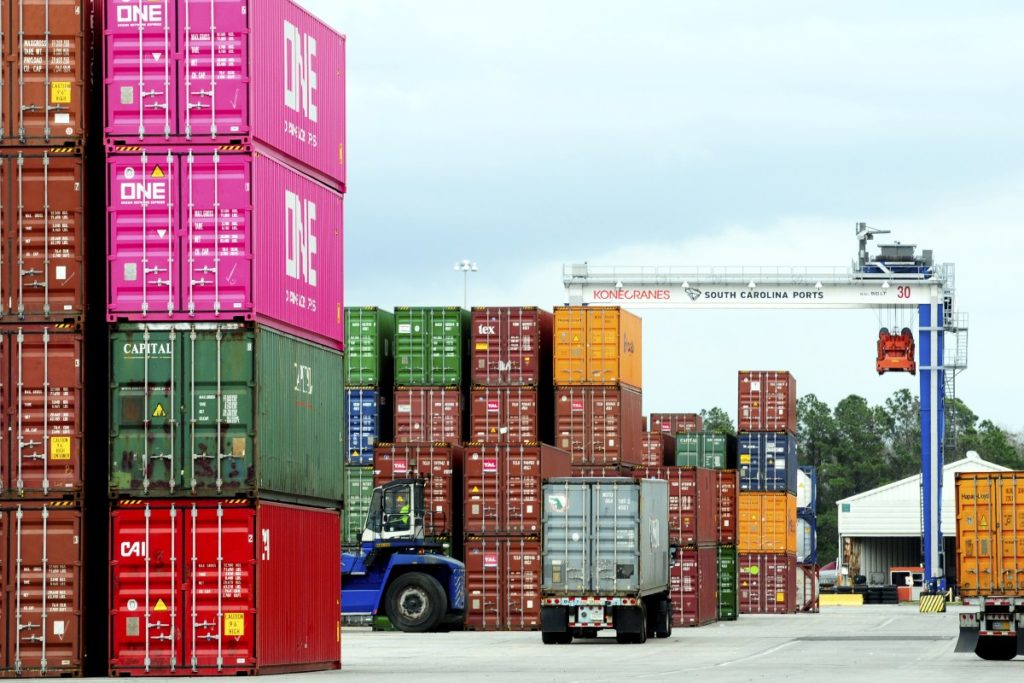
By Jack O’Toole, Capitol bureau | A three-day-old port strike that South Carolina officials warned might threaten Hurricane Helene recovery efforts ended yesterday, as dock workers and port operators struck a tentative deal to get International Longshoremen’s Association members back on the job in Charleston and around the country.
Under the agreement, port workers will receive a 62% wage hike over the next six years, sources told Reuters. Other issues, including future automation of work currently being performed by union employees, will be hammered out over the next 90 days.
President Joe Biden, who resisted earlier entreaties from S.C. Gov. Henry McMaster and U.S. Sen. Lindsey Graham, R-S.C., to end the work stoppage by executive order, hailed the agreement.
“I want to thank the union workers, the carriers, and the port operators for acting patriotically to reopen our ports and ensure the availability of critical supplies for Hurricane Helene recovery and rebuilding,” Biden said. “Collective bargaining works, and it is critical to building a stronger economy from the middle out and the bottom up.”
Graham called the agreement “very good news” in a social media statement.
“I am glad this man-made disaster is behind us.” Graham wrote. “Now we will have more resources to help the devastated.”
At an Oct. 3 press briefing before the announcement, S.C. Public Health Department Director Dr. Edward Simmer told reporters that recovery efforts could be hampered if the strike dragged on.
“We’re very concerned because many of the medical supplies come through our ports,” Simmer said. “The sooner our ports reopen, the faster we’ll be able to get our medical care system in the state fully up and running again.”
Port of Charleston ILA Vice President Kenneth Riley told WCBD in Charleston that workers would be returning to work immediately.
“As soon as we can get those ships in here and we can get orders on board, we’ll be back to work as early as tonight or even tomorrow morning,” Riley said.
In a statement, the S.C. State Ports Authority (SPA) said it, too, was ready to resume normal operations.
“South Carolina’s maritime community stands prepared to deliver for shippers, including manufacturers, farmers and retailers, who utilize our port facilities to access global markets,” the SPA said. “Let’s get to work!”
In other recent news
![]() S.C. justices deny request to rehear school vouchers case. The state Supreme Court will not rehear lawmakers’ arguments or delay implementation of its ruling on South Carolina’s fledgling voucher program, likely ending any possibility that payments for private tuition could resume this year.
S.C. justices deny request to rehear school vouchers case. The state Supreme Court will not rehear lawmakers’ arguments or delay implementation of its ruling on South Carolina’s fledgling voucher program, likely ending any possibility that payments for private tuition could resume this year.
What inspired Charleston’s Fairey to create pro-Harris presidential poster. Charleston-born artist Shepard Fairey is mixing it up again politically with a patriotic presidential poster — this time pushing Vice President Kamala Harris’s candidacy.
S.C. Democratic Party seeks to extend voter registration deadline in wake of Helene. The party’s lawsuit asks that voter registration deadlines, including in-person, online, and mail-in, be extended to Oct. 14 because of the “damage and chaos” resulting from Helene.
Filing deadline extended for 2023, 2024 taxes due to Helene. The Internal Revenue Service today announced disaster tax relief for all individuals and businesses affected by Hurricane Helene in South Carolina.
S.C.’s energy crisis: The 411 after a month of hearings. A state Senate panel is moving into concrete policy discussions after hearings with utilities, environmental groups and business leaders.
S.C. remains the only state without non-consensual image protections. A look at how a Virginia case might inform an effort in S.C. to provide protections against non-consensual distribution of intimate images. S.C. is the only state in the nation without such protection.
Mentally ill S.C. arrestees can wait for months for psych evaluations. But more money may be coming to clear up the backlog.
Problem-solver
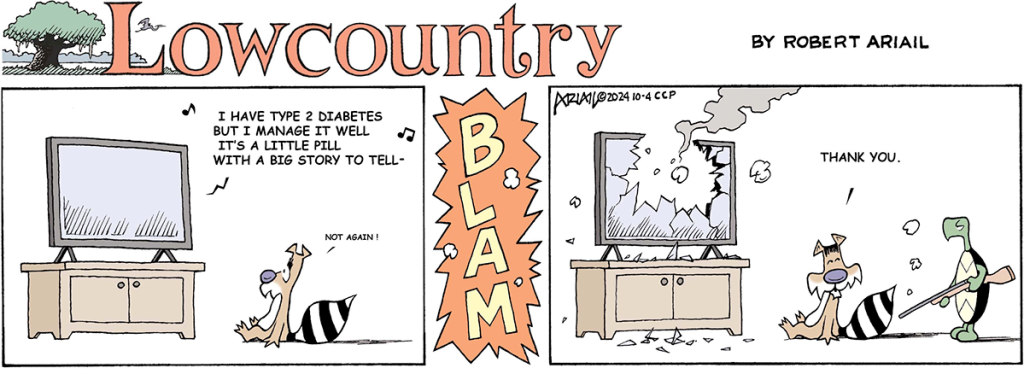
Nationally award-winning cartoonist Robert Ariail always has an interesting take. This week, he takes on those mind-numbing, annoying pharmaceutical commercials that just won’t go away.
What do you think … love it or hate it? Did he go too far, or not far enough? Send your thoughts to feedback@statehousereport.com.
Americans might not be as divided as you think
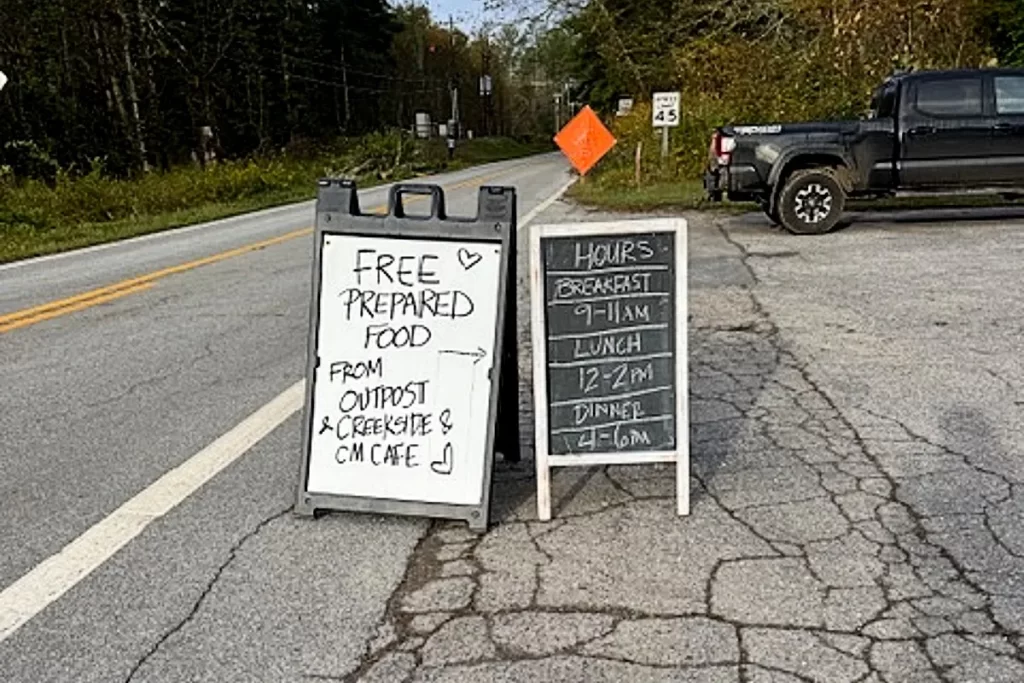
By Andy Brack | The common assumption among pundits, talking heads, influencers, water cooler chatters and many neighbors is that Americans are polarized, deeply divided into two intractable camps. It’s as if they are on opposing football teams and you can almost hear their helmets ready to crack.
 But are we making more of so-called political division than there really is? In other words, is there any “there” really there?
But are we making more of so-called political division than there really is? In other words, is there any “there” really there?
Maybe not. Just look at what’s happened in the cleanup after the devastation of Hurricane Helene. People giving aid didn’t ask whether those in need were Republican or Democratic. Gov. Henry McMaster, a Republican, warmly shook the hand of President Joe Biden when he landed in Greenville to survey damage and unleash more floodgates of federal help. People on the receiving end were thankful for the kindnesses and routinely remarked how their communities came together in new ways.
“Def loving all the good,” one North Carolina texted. “Community center feeding everyone.”
And while a new Winthrop political poll in South Carolina says 52% of South Carolina’s likely voters will cast ballots for former GOP President Donald Trump and 42% for Democratic Vice President Kamala Harris, those results are political choices – not necessarily a reflection of a society at loggerheads. In fact, 72% of respondents said they thought the South was better off as part of the United States than as a separate country – and this in the state where the Civil War started.
Analysts say we may live in a society where there is a myth of polarization – that we think we know where everybody stands, but we really don’t.
A July 2024 article in Time magazine dove into the question by looking at a 2021 survey that tried to figure out what kind of country Americans wanted to leave to future generations.
In the study, researcher Todd Rose concluded Americans think they’re divided, but are pretty bad at figuring out what other Americans really think.
His American Aspirations Index survey found “stunning agreement” on national goals across the country’s population. There was disagreement on immigration but “intense disagreement was the exception, not the rule.”
Perhaps, the Time story continues, Americans don’t really have the right idea about polarization and society: “It may not be nearly the engine we thought. It’s possible that what it produces, as much as anything, is noise.”
Just look at an Associated Press-NORC Center for Public Affairs Research poll from July. Core American beliefs, it said, are shared by a vast majority of Americans – beliefs in the rights of equal protection under the law, the right to vote, freedom of speech, the right to privacy, freedom of religion, the right to assemble peacefully – and even the freedom of the press.
And a review of studies on polarization by the Carnegie Endowment for International Peace seems to point blame at politicians on both sides for fueling ideological perceptions of polarization – that they intentionally ratchet up heat on political issues to score points. And part of the blame is the media that spread the mess.
“The American public feels affectively polarized largely because of misunderstandings about the other side (though the misunderstandings seem sensitive to actual ideological differences),” the review said.
About the only meaningful conclusions to draw from all of this seem to be:
- Think for yourself.
- Look inside your heart to check to see if what they’re saying is your reality.
You probably think you are thinking for yourself, but the politicians and media are spinning you to get you to vote red or blue.
Perhaps the best thing during this election season is to look around and consider which candidates will most help your grandchildren to be educated, safe and have a good standard of living. And then take a deep breath and relax. Because, as it turns out, that’s what your neighbors, red or blue, really care about too.
Andy Brack is editor and publisher of Statehouse Report and the Charleston City Paper. Have a comment? Send to: feedback@statehousereport.com
The Felkel Group
 The public spiritedness of our underwriters allows us to bring Statehouse Report to you at no cost. This week in the underwriter spotlight is The Felkel Group, a battle-tested public affairs and business development firm that assists corporations, associations and not-for-profits that are serious about their long-term success. The Felkel Group solves problems, crafts and delivers messages, helps organizations to manage crisis, and uses a wealth and breadth of valuable relationships to help to seal deals.
The public spiritedness of our underwriters allows us to bring Statehouse Report to you at no cost. This week in the underwriter spotlight is The Felkel Group, a battle-tested public affairs and business development firm that assists corporations, associations and not-for-profits that are serious about their long-term success. The Felkel Group solves problems, crafts and delivers messages, helps organizations to manage crisis, and uses a wealth and breadth of valuable relationships to help to seal deals.
The Felkel Group is also home to an outstanding advocacy tool called The Rap Index, a powerful intelligence tool that employs sophisticated computer modeling and profiling techniques to help organizations find their most effective advocates. To learn more about The Felkel Group and its Rap Index, go to: http://www.felkelgroup.com.
Old stone building
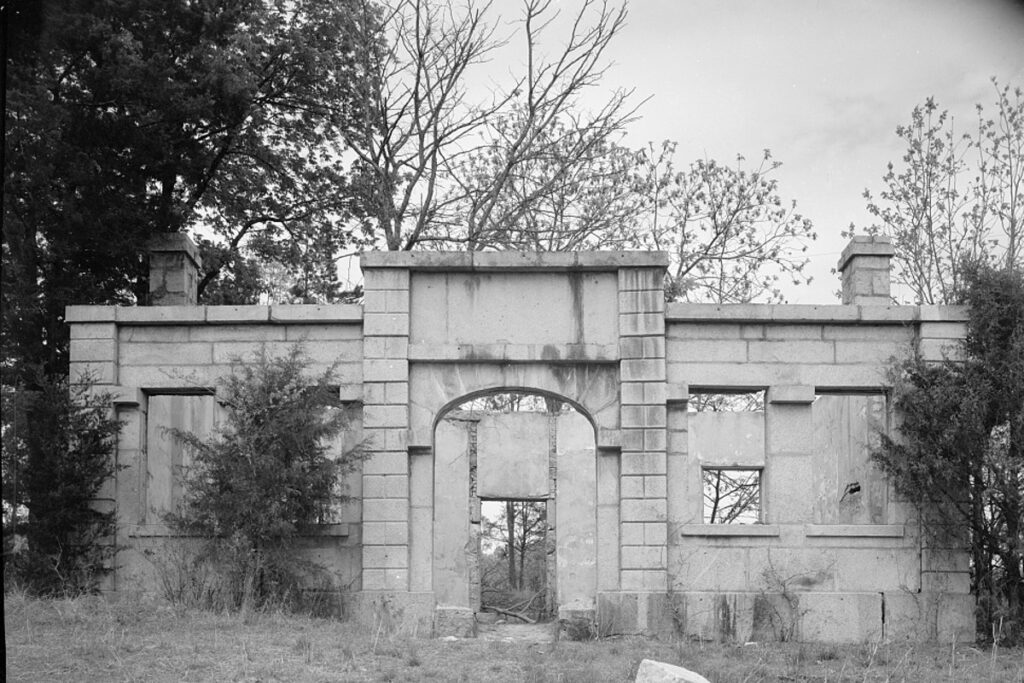
What (and where) was this in South Carolina before it went into disuse? Send your name, hometown and guess to: feedback@statehousereport.com.
Last week’s mystery, “Lush scene,” showed an old postcard of gardens at Hopelands in Aiken. It opened as a public garden in 1970 after several decades as a wealthy family’s estate.
 Penny Forrester of Tallahassee, Fla., writes that the owner, Hope Iselin, “was a noted horse racing owner and fan known both in the U.S. and England as ‘the great lady of racing.’ She and her husband built a winter home in Aiken around 1900. She began developing her gardens at that time. She died in 1970 at the age of 102 and bequeathed the house and gardens to the City of Aiken.”
Penny Forrester of Tallahassee, Fla., writes that the owner, Hope Iselin, “was a noted horse racing owner and fan known both in the U.S. and England as ‘the great lady of racing.’ She and her husband built a winter home in Aiken around 1900. She began developing her gardens at that time. She died in 1970 at the age of 102 and bequeathed the house and gardens to the City of Aiken.”
Congratulations to the few who correctly identified it: Allan Peel of San Antonio, Texas; Don Clark of Hartsville; George Graf of Palmyra, Va.; Jay Altman and Elizabeth Jones, both of Columbia; Pat Keadle of Perry; and Frank Bouknight of Summerville.
- Send us a mystery picture. If you have a photo that you believe will stump readers, send it along (but make sure to tell us what it is because it may stump us too!) Send to: feedback@statehousereport.com and mark it as a photo submission. Thanks.
Send us your thoughts
We encourage you to send in your thoughts about policy and politics impacting South Carolina. We’ve gotten some letters in the last few weeks – some positive, others nasty. We print non-defamatory comments, but unless you provide your contact information – name and hometown, plus a phone number used only by us for verification – we can’t publish your thoughts.
- Have a comment? Send your letters or comments to: feedback@statehousereport.com. Make sure to provide your contact details (name, hometown and phone number for verification. Letters are limited to 150 words.
ABOUT STATEHOUSE REPORT
Statehouse Report, founded in 2001 as a weekly legislative forecast that informs readers about what is going to happen in South Carolina politics and policy, is provided to you at no charge every Friday.
- Editor and publisher: Andy Brack, 843.670.3996
- Statehouse bureau chief: Jack O’Toole
Donate today
We’re proud to offer Statehouse Report for free. For more than a dozen years, we’ve been the go-to place for insightful independent policy and political news and views in the Palmetto State. And we love it as much as you do.
But now, we can use your help. If you’ve been thinking of contributing to Statehouse Report over the years, now would be a great time to contribute as we deal with the crisis. In advance, thank you.
More
- Mailing address: Send inquiries by mail to: P.O. Box 21942, Charleston, SC 29413
- Subscriptions are free: Click to subscribe.
- We hope you’ll keep receiving the great news and information from Statehouse Report, but if you need to unsubscribe, go to the bottom of the weekly email issue and follow the instructions.
- Read our sister publication: Charleston City Paper (every Friday in print; Every day online)
- © 2024, Statehouse Report, a publication of City Paper Publishing, LLC. All rights reserved.


